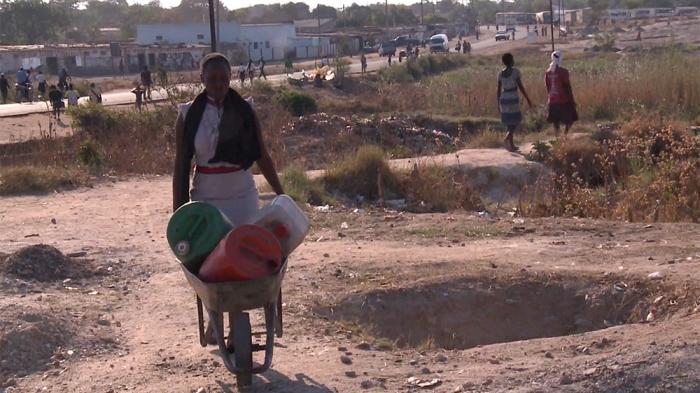Zimbabwe: Unsafe Water Raises COVID-19 Risks
Read a text description of this video
Dewa Mavhinga, HUMAN RIGHTS WATCH
The streets of Harare, almost desolate. Like many countries across the world, Zimbabwe ordered a nationwide lockdown in an attempt to slow the spread of Covid-19. But even before the virus arrived here, major parts of the country lacked one of the essential elements to protect people’s health and prevent infectious disease outbreaks.
Melody Diza, Resident of Harare
The problem started in 2013. Water stopped running in our taps. We have to walk long distances, five to six kilometers just to get water.
Dewa Mavhinga, HUMAN RIGHTS WATCH
We were here in Harare shortly before the Covid-19 pandemic to continue an investigation on a severe sanitation and water crisis.
Dewa Mavhinga, on camera
Thousands of residents across Harare have no access to clean water.
Herbert Gomba, Mayor of Harare
We are losing a lot of treated water along the system because the pipeline is aged. Around a third of our people only are accessing water, two thirds are not, and that’s a dangerous situation.
DEWA on camera
Many residents spend up to 10 hours a day and sometimes queue throughout the night to get water from boreholes that are contaminated and unsafe and also from wells in their backyards.
Herbert Gomba, Mayor of Harare
We have had three outbreaks of cholera and certainly if we don’t act to improve our infrastructure, we are bound to be susceptible to numerous waterborne diseases. We are urging residents not to drink from unprotected, unsafe wells.
Maria Phirim, Resident of Harare
Yes, sometimes there is a breakout of diseases. We just use it [water] as it comes. We don’t put any chemicals in it. We can’t afford the chemicals. We don’t have chemicals. We just use the water as it comes.
Dewa Mavhinga, HUMAN RIGHTS WATCH
Women and children of school-going age spend sometimes eight, nine hours and all night at the borehole queuing for water.
Bridget Madziro
Sometimes we don’t have enough time to study because we have to stay in the water queue even at night as late as 10 p.m. Other times we have to wake up as early as 4 a.m. to join the queue.
Dewa Mavhinga, HUMAN RIGHTS WATCH
This problem has gone on long enough, but Covid-19 has made an already dire situation even more urgent. Combating the spread of the virus requires people to wash their hands regularly and maintain good physical hygiene. For that, they need to have access to an uninterrupted supply of sufficient clean water.
Melody Diza, Resident of Harare
We just want to have running water in our taps. We just ask them to fix the pipes so that we have running water in our homes.
Dewa Mavhinga, HUMAN RIGHTS WATCH
The Zimbabwe authorities should provide alternative sources of safe water, such as safe boreholes and protected wells and educate residents about simple low-cost safe water storage and delivery methods. And ensure that there are enough water points across the country to prevent overcrowding and enable social distancing.
Zimbabwe government measures to combat COVID-19 should include urgently providing continuous and affordable access to sufficient safe water to people across the country. Long before the coronavirus pandemic, much of Zimbabwe suffered a severe water and sanitation crisis. On March 30, 2020, Zimbabwe, like many countries, ordered a nationwide lockdown to slow the spread of the virus.

